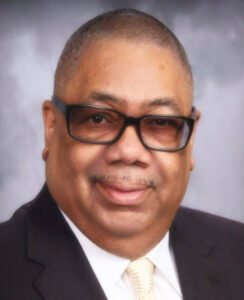
By Rev. Donald L. Perryman, Ph.D.
The Truth Contributor
As Nicholas Kristof wrote, “The greatest problem is not with flat-out white racists, but rather with the far larger number of Americans who believe intellectually in racial equality but are quietly oblivious to injustice around them.” Too many whites unquestioningly accept a system that disproportionately punishes blacks . . . We are not racists, but we accept a system that acts in racist ways. ― Jim Wallis
The United States’ status as a “shining city on a hill” is frequently praised. In reality, diversity is the cornerstone upon which this prominent badge of distinction is based. America’s unparalleled innovation and global influence can be directly attributed to its diversity of races, ethnicities, religions, cultures and ideas.
Yet, inside this most formidable strength dwells a fatal flaw: racism. According to theologian Jim Wallis in America’s Original Sin: Racism, White Privilege, and the Bridge to a New America, America’s legacy of slavery and systemic racism still influences the nation, posing a threat to its democratic ideals and position as the global leader.
It is true that the nation’s founding documents initially served a narrow group – predominantly white and wealthy men. Yet, the country’s unique mix of cultures, ethnicities, and perspectives fueled its economic prosperity and an alluring global appeal to complement our innovative superiority. Diversity has been central to this success and America’s identity.
Diversity has made the U.S. a universal leader in science and technology and arts and entertainment. In addition, research indicates that diverse teams are more effective at solving complex problems, and economists attribute much of America’s economic success to its multicultural workforce.
Furthermore, America’s diversity continues to provide its ability to influence the world through culture and moral authority. Its promotion of freedom, democracy, and human rights has built alliances and partnerships with countries striving to emulate these American values. Moreover, diversity is crucial for the nation’s future, providing a foundation for healing and unity at a time when racial and cultural divides fracture the nation.
Nevertheless, despite its strengths, America also possesses a legacy so vile or morally repulsive that “legislative eyes” seek to ban books to prevent us from even looking at what Wallis and others have called our “original sin”—racism. From the brutal legacy of slavery to Jim Crow segregation to Mass Incarceration and up to the current day, racism has left severe wounds on American society with scars so deep that white privilege and racial inequality are woven into the fabric of the nation’s institutions and systems, creating structural barriers that undermine the nation’s ideals and prevent true equality.
Indeed, the stain of America’s original sin is vividly transparent in today’s racial wealth gap, obscene disparities in education and healthcare, and ongoing barbarous police violence against Black and Brown communities.
Thus, the 2024 election is an opportunity for the nation to reckon with this history and work toward healing. If ignored, social and political divisions could break America apart, jeopardizing the nation’s stability and evicting it from its perch as the world’s leader.
Will America build a “bridge to a new America” rooted in justice, equality, and inclusivity, or destroy it by further entrenching divisions?
The outcome of the 2024 election will determine the path. The presidential candidates vying for leadership each possess starkly different visions. The potential rise of one candidate with reported ties to White Nationalism and exclusionary ideologies would be devastating. Such a leader, using chaos, division, and fear as tools to ascend to power, can be likely counted on to legitimize extremist views, intensify racial divides, and enact policies that disenfranchise minorities, communities of color, and women – all of which are certain to undercut America’s diversity and moral authority.
On the other hand, actively confronting the original sin of racism, patriarchy, and economic inequality will build a bridge to a new America. According to Wallis, that means white Americans acknowledging their privilege, institutions addressing systemic inequities, and communities coming together to build empathy, understanding, and solidarity. Vice President Kamala Harris has promoted this vision of a new America. It rests on the idea that the nation’s strength lies not in erasing its differences but in honoring them and creating a society where all people are included and have equal access to opportunity and justice.
As the world’s most powerful democracy, embracing and choosing a leader who tolerates or promotes White Nationalism will also embolden authoritarian regimes and nationalist movements globally. So, also expect adversaries like Russia and China, which challenge the U.S.’s leadership and democratic values, to seize on America’s divisions to promote their own authoritarian models to other nations while arguing that democracy is inherently flawed.
As of this writing, I don’t know how it will all shake out. But one thing seems clear: The current decisive moment demands that the nation truly confront both its greatest strength and its greatest flaw.
Diversity has the power to unite and elevate America. In contrast, racism, the nation’s original sin, has the potential to tear it apart. The choice America makes will determine whether it builds a bridge to a new, more inclusive future or succumbs to the divisions that could spell the collapse of an empire.
Contact Rev. Donald Perryman, PhD, at drdlperryman@enterofhopebaptist.org
